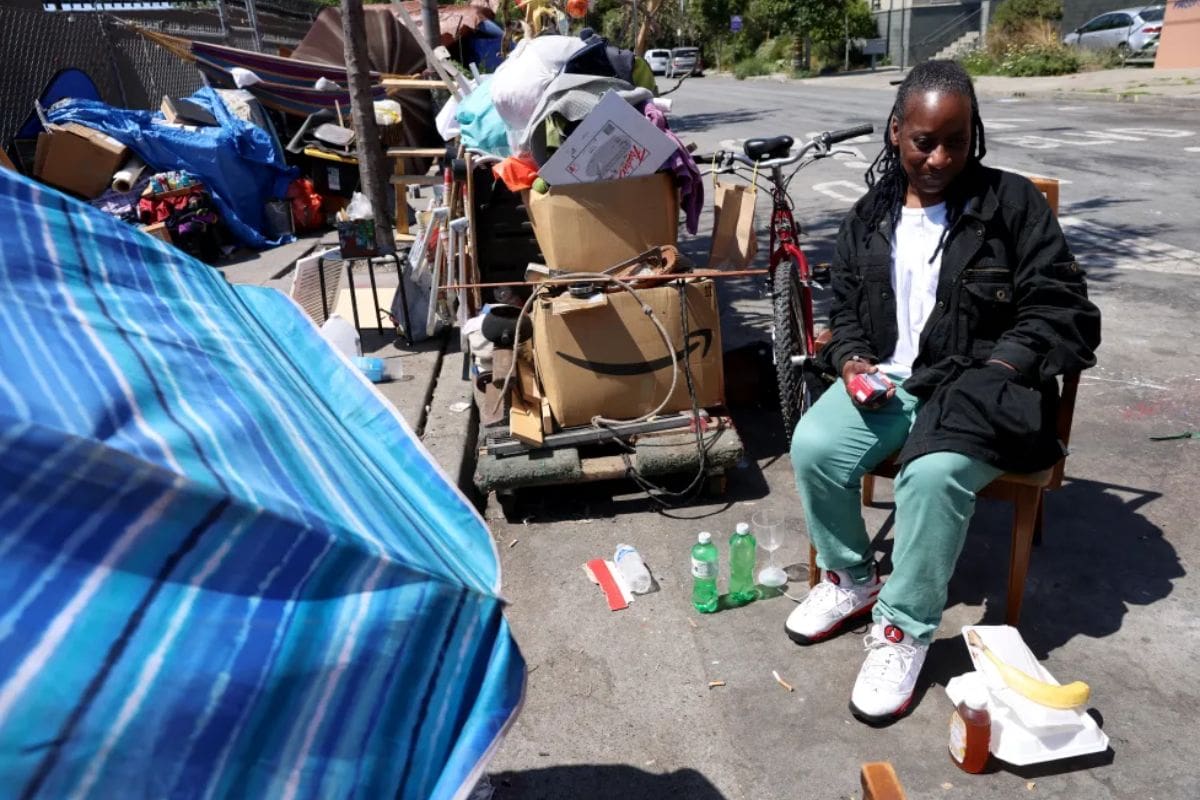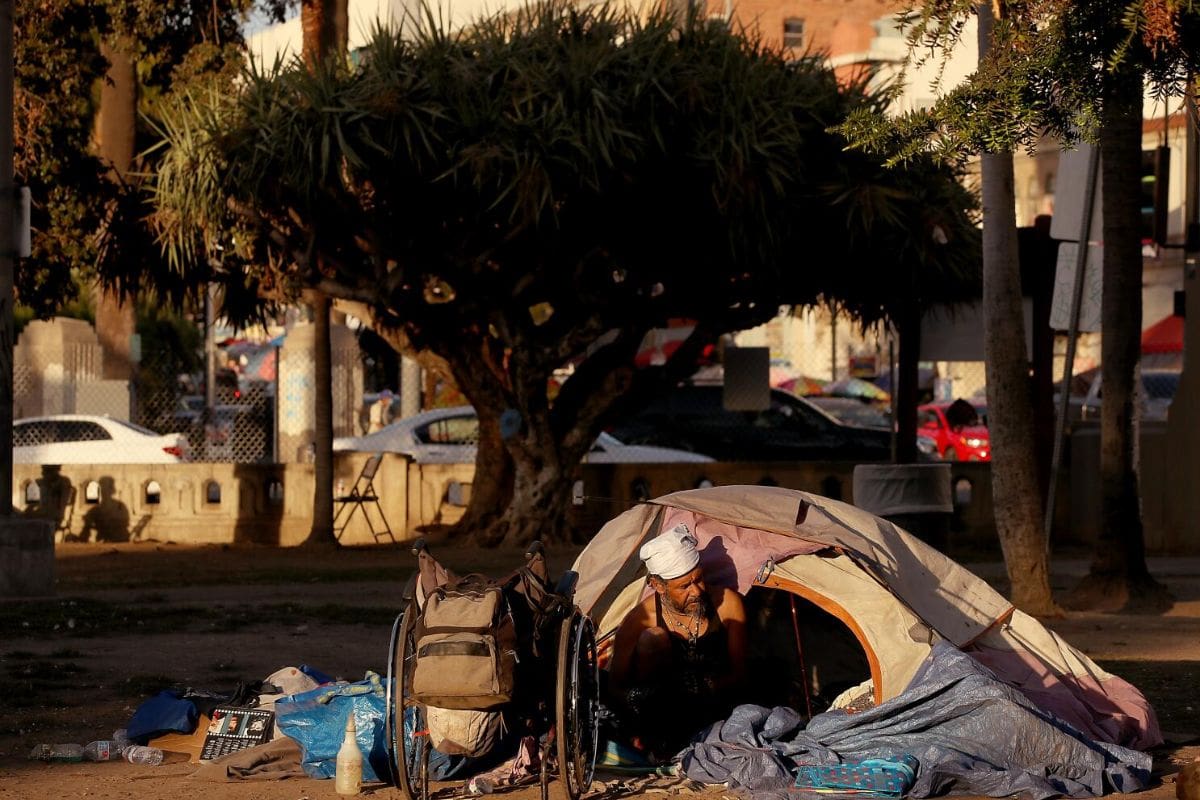California Homelessness Crisis: As California grapples with a deepening homelessness crisis, voter doubts surrounding funding solutions have reached a critical juncture. Proposition 1, a contentious ballot measure aimed at addressing this pressing issue, has sparked skepticism and raised questions about the feasibility of proposed solutions.
Against the backdrop of Governor Newsom’s ambitious agenda to combat homelessness, the state faces a pivotal moment in determining the path forward. Amidst growing concerns and uncertainties, the role of Proposition 1 and the challenges it must navigate loom large, leaving many to ponder the effectiveness of proposed strategies in tackling this complex societal issue.
Contested Ballot Measure
California Proposition 1, spearheaded by Governor Gavin Newsom, is currently facing a tight race post-March 5th election as voters express increasing doubts over its efficacy in combating the state’s homelessness crisis.
The proposition, designed to tackle mental health and addiction crises as part of addressing the overarching homelessness issue, is at a critical juncture with a narrow lead of 50.4% to 49.6%. Prop 1 proposes a substantial $6.4 billion bond and aims to reallocate between $3 to $4 billion from existing mental health tax revenue to finance the creation of new housing units and treatment facilities.
However, the slim margin of support indicates significant voter skepticism regarding the potential impact of this massive financial commitment. With concerns rising over the effectiveness and implementation of the proposed measures, Governor Newsom’s ambitious plan to address California’s homelessness crisis is met with a divided electorate unsure of the path forward.
Voter Skepticism and Growing Concerns
Amid Governor Gavin Newsom’s ambitious Proposition 1 campaign to address California’s homelessness crisis, voter skepticism and growing concerns are palpable as doubts persist regarding the effectiveness of proposed solutions in light of the visible deterioration of the state’s streets. Despite Newsom’s vigorous campaigning and promises of comprehensive reforms, voters express doubts about the state’s ability to tackle homelessness effectively.
Skepticism is fueled by the visible deterioration of California’s streets, strewn with makeshift shelters and struggling individuals battling addiction and mental illness. Critics argue that pouring billions into interventions hasn’t yielded tangible results, with homelessness surging by 20% since Newsom took office in 2019. The lack of significant improvement in addressing homelessness has left many voters questioning the efficacy of the proposed funding solutions.
This skepticism underscores a growing concern among Californians about the state’s ability to effectively combat the crisis and provide meaningful support to those experiencing homelessness. As the issue continues to worsen on the streets of California, voters are increasingly skeptical about the effectiveness of the current approaches being taken by the government.

Governor Newsom’s Ambitious Agenda
Governor Newsom’s ambitious agenda to address homelessness is characterized by a comprehensive array of initiatives aimed at providing sustainable solutions to the crisis. Despite allocating over $20 billion to combat homelessness, concerns remain regarding the efficacy of these measures.
Some key components of Governor Newsom’s agenda include:
- Converting hotels into permanent housing for the homeless population.
- Securing six months of free rent for individuals experiencing homelessness.
- Spearheading Medicaid initiatives for social services and housing supports.
- Promoting collaborations between government agencies, nonprofits, and private sectors to address the multifaceted nature of homelessness.
While these initiatives demonstrate a proactive approach to tackling the issue, the persistence of homelessness in California suggests that further evaluation and adjustments may be necessary. As Governor Newsom continues to push forward with his agenda, the effectiveness of these strategies will be closely monitored to ensure meaningful progress in alleviating the state’s homelessness crisis.
The Road Ahead: Proposition 1’s Role and Challenges
As California navigates its complex landscape of homelessness solutions, Proposition 1 emerges as a critical component in addressing the ongoing challenges faced by the state. Governor Newsom has positioned Proposition 1 as a cornerstone of his comprehensive strategy to tackle homelessness by providing funding for treatment beds, housing initiatives, and crucial social services. While Proposition 1 plays a vital role in addressing the crisis, experts warn that it is not a standalone solution. The measure, while promising, is not a ‘silver bullet’ and must be supplemented with additional efforts to effectively combat homelessness in California.
One of the key concerns surrounding Proposition 1 lies in its execution and implementation. California faces significant hurdles in undertaking large-scale capital projects efficiently, raising doubts about the state’s capacity to translate the proposed funding into tangible results. Overcoming these challenges will require a concerted effort from policymakers, communities, and service providers to ensure that Proposition 1 fulfills its intended purpose and contributes meaningfully to alleviating the homelessness crisis in the state.


ALSO READ: High Desert Campuses Shine: Prestigious California Distinguished Schools Recognition Unveiled
News in Brief
California’s Homelessness Crisis: Voter Skepticism Over Proposition 1’s Effectiveness. Governor Newsom’s ambitious plan faces doubts as the ballot measure, designed to address mental health and addiction in the homelessness crisis, hangs in the balance with a narrow lead of 50.4% to 49.6%. Critics highlight concerns about the state’s ability to deliver tangible results despite a proposed $6.4 billion bond and reallocating $3 to $4 billion in mental health tax revenue. With visible deterioration on California’s streets, voters question the efficacy of massive funding commitments and the overall effectiveness of current interventions, emphasizing the urgency of addressing this pressing societal issue.

